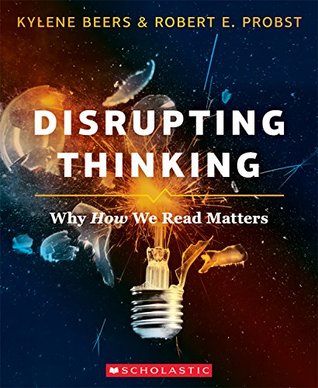More on this book
Community
Kindle Notes & Highlights
What all these people have in common is that they set aside how things had been done and wondered instead what would happen if. They didn’t wait for the world to change; they changed the world.
Disruptive practices are disruptive because they end one approach, probably a time-tested “best practice,” and replace it with another.
Innovation is the lifeblood of progress. It is nursed and nurtured in the arms of failure; in collaboration; in creativity; in curiosity; in passion; in tenacity and grit and optimism. It does not let us merely survive; innovation is what lets us thrive.
In other words, we made a small disruption fit within a model of education we all know and understand.
Dov Seidman warns of in How: Why HOW We Do Anything Means Everything. In the preface he explains, “there is a difference between doing something so as to succeed and doing something and achieving success” (p. xxxvi), and many schools seem to confuse the two.
“The Genteel Unteaching of America’s Poor” when President of the National Council of Teachers of English. Go to scholastic.com/BeersandProbst to read this Presidential Commentary.
Differentiation must be grounded in equity, in access, in agency. Differentiation that results in a diminished educational experience for those kids is not only wrong, it is shameful. It is a form of segregation that must be examined, exposed, and rejected. All students deserve an education that engages and motivates, that inspires lifelong curiosity.
We need to ask ourselves those two questions we have mentioned a couple of times now: What needs to change? What assumptions make that change hard?
We think far too often we have confused the words interest and relevance.
Interest is about something out there, out in the world. The video is interesting. The photographs are interesting. Interest is often fleeting, lasting about as long as the video clip we provided for kids to watch. Relevance, by contrast, is always personal. Relevance is about what matters to you. It starts with observing something in the world, but then it shifts to a thought or a feeling inside of you. Something that is relevant is inherently interesting; but something that is interesting isn’t always relevant. In short, getting kids’ attention is about creating interest; keeping their
...more
“Rigor resides in the energy and attention we bring to a text.” I’d add that it’s about the energy and attention we bring to a task.”
But intensive study of a novel does result in more negative attitudes toward reading (Coryell, 1927; McConn, 2016). In other words, intensive study of a single novel does little good and perhaps significant harm.
Thus, our first and most reliable question for students is simply, “What surprised you?” That requires him to pay attention to his own reactions as he remains alert to what may come as a surprise, but it also demands that he pay attention to the text so that he knows what it was that caused the reaction.
Similarly, the question, “What did the author think I already knew?” asks the student to be alert to that moment when she feels the need of more information, which again requires her to look at both herself and the text.
“What changed, challenged, or confirmed your thinking?,” asks the student to look at the significance of the text for himself. It invites—maybe even encourages—reflection on his own understanding, his own values, his own conception of himself and his place in the world.
To change, we have come to believe, is the fundamental reason for reading. And this is what we need to teach our students.
If a changemaker—as a person—is one who inspires, who offers creative solutions to social problems, who mentors, who collaborates—then we see no reason why texts should not be viewed as changemakers. They can be viewed as changemakers if we recognize that we read for a far more critical reason than to be able to answer someone else’s questions; we read to raise our own questions. We read to explore, to wonder, to grow, to become what we did not even know we might want to be. We read to change.
That reading changes us. Or rather, it enables us to change ourselves, because we wouldn’t want to hand over the responsibility for what we become to someone else, whether a persuasive novelist, an eloquent preacher, or a convincing politician. Presumably, we want to be able to define ourselves, rather than have our lives sketched out for us by someone else. Reading helps us do that, if we approach it open to that possibility.


